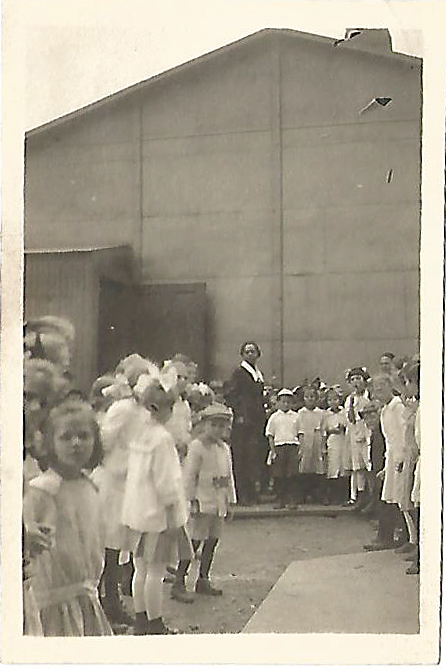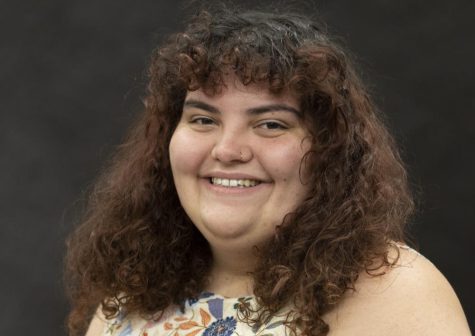Life for Eastern’s first Black grad
September 22, 2021
Editor’s note: This is the second part of a series detailing the life and legacy of the Powell family of Mattoon, Illinois, as well as the life of their descendants. Zella Powell, a daughter of the prominent family, was the first Black student to attend and graduate from Eastern when it was the Eastern Illinois State Normal School. The second part of this series will focus on Zella Powell’s life, from her childhood in Mattoon to graduating Eastern and beyond.
Zella Powell started life off as a fighter. As the only child born to John Powell and Victoria Barr Powell to survive to adulthood, she had no other choice.
According to Zella’s granddaughter, Stephanie Wright Griggs, everyone has their own story and her family’s story was that of a typical middle-class lifestyle.
“Yeah, it was a different, it was another slice of Black life. I feel that all the Black experience is equally valid but everybody was not a slave and everybody was not wealthy, but you had some extremely wealthy people,” Wright Griggs said. “Those were not my ancestors, but they were definitely middle-class part of the community, a respected part of the community that supported their small society.”
Zella’s father was the first native-born resident of Mattoon, Illinois and the son of a pioneer family of the still-new city. The work of her father and grandfather in their community led to Zella being born into her prominent, middle-class Black family.
Wright Griggs said she believes her grandmother growing up being the only surviving child in her family caused her to take a deeper interest in the world around her.
Zella’s interest led her to scrapbook important moments in her life and the lives around her, later giving her granddaughter inspiration for Picture Perfect: Zella’s Traveling Scrapbook, a traveling scrapbook on her grandmother’s life.
“She had all kinds of stories about different things going on in the world, different things happening with African Americans and then a lot of the family events, all of us in one book,” Wright Griggs said. “And it’s an interesting chronology of what was going on at the time in the United States.”
Some of what was detailed was her time at Eastern.
Zella graduated studied teaching at Eastern and graduated in 1910.
While being the first Black graduate from Eastern is a major part of Zella’s story, Wright Griggs said her legacy can be described in many ways.
“Well, you can define legacy in many ways, and I think the most basic one was really have the approach of helping other people. Be proud of who you are. Don’t let people stop you from what you want to achieve. And she inherited that from her parents, and her grandparents. Don’t be afraid to be the first, which was huge, heading off to Eastern Illinois. But then like I said, she was willing and ready to head off,” Wright Griggs said. “So, she was determined to get an education and have a career, which was kind of different for women those days, too when you think about it. She was ahead of her time as a Black woman during that period of time and she kept going with it. She wanted to make a difference.”
Wright Griggs said her grandmother never talked much about her time at Eastern, but Wright Griggs wishes she would have. She added she does not know if attending Eastern was a positive or negative experience.
“You know, I wish I’d asked her. I was too young to know that at the time. You know, we all have desires to go back in time and talk about it. I mean, she was ill and I was 13. When we were younger she talked about it, but she talked about it in passing because, I mean, Black people did not discuss those stories, the struggle, because they weren’t really sure how they’d be perceived by the framework. And a lot of times, they did not want to share that burden. And I’ll turn around and say I don’t know that was a burden for my grandmother’s to the extent of some, but I know it had to be,” Wright Griggs said. “Because on one hand, I looked at the fact she basically grew up in a pretty predominantly white community. So she had a different sense of expectations, just having lived in that environment versus people who weren’t in that environment.”
Wright Griggs said she has weighed the idea in her head before.
“So I go back and forth on that one in terms of what it must have been like for grandma. I know it was hard, because the perception of her being there, and the only one was probably difficult because let’s face it, a lot of white Americans didn’t think Black Americans were supposed to be in college, right. And you probably had some of those there that time,” Wright Griggs said. “But on the flip side, she knew the community. And she had a sense of what she was going into.”
After college, Zella returned home to teach before moving to Chicago to teach.
In Chicago, she met Albert Lovett, another educator and the man she ended up marrying.
Wright Griggs shared that shortly after their marriage, the couple experienced two major events: the birth of their daughter Louise and the 1919 Riots.
Louise was two months old at the time the riots broke out.
“They were living in a two-story flat owned by a white man and after the riots broke out, the oral history is, that riots came down the street and towards his building, I don’t know if they knew my grandparents and mom were there or suspected it, and the owner of the building was outside watering his lawn. And the story is that he watered them, he just kept watering them and saying there aren’t any Black people…here go on down the street, and they didn’t pursue it,” Wright Griggs said. “My grandfather was in the window with a rifle.”
During their life in Chicago, Zella and Albert carried on their tradition of education, which flowed through them and onto their daughter.
Corryn Brock can be reached at 581-2812 or at [email protected].




















































